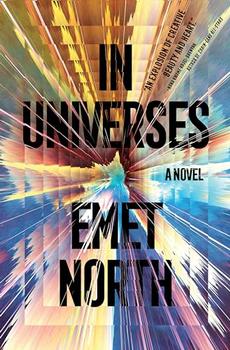Book Club Discussion Questions
Want to participate in our book club? Join BookBrowse and get free books to discuss!
Please be aware that this discussion guide will contain spoilers!
-
In the opening chapter, Raffi's professor says that there are certain things in the universe you can only find by looking away from them. What elements of Raffi's life are they unwilling to look at early in the novel? How does this change by the end?
-
How does Raffi's worldview shift as they move from being a scientist to an artist? How do the worlds of art and science intersect?
-
Which universe did you most relate to? Which one stuck with you the most?
-
How does the novel transition from one universe to the next? How do these shifts relate to the theme of identity exploration and growth? (Bonus question: Can you notice any differences between the way the universes transition in Part I versus in Part II?)
-
What role do mental health issues play in the novel?
-
How does the novel engage with the concept of family? What about chosen family?
-
How does the book tackle themes of intergenerational trauma? Can you think of ways that your own family history affects your experience of the world?
-
Over the course of the novel, we see Raffi in romantic relationships with Graham, Kay, Alice, and finally Miko. How does Raffi show up differently in these relationships? Do different people in your life bring out different aspects of your personality?
-
A key theme of the novel is that our experience of the world is not necessarily reflective of reality. What would change if you believed that time didn't flow? Or that there were infinite parallel versions of yourself?
-
In the final chapter, Raffi has the chance to leave the City of Refuge for another universe. What factors convince them to stay?
-
What surprised you about the ending? In what ways did it encourage you to rethink the nature of grief and guilt?
-
If you could travel to an alternate version of your life, would you go? What would it take for the universe you're currently in to be the one you'd choose above all others?
-
If you could ask the author, Emet North, one question about the book, what
would it be?
Unless otherwise stated, this discussion guide is reprinted with the permission of Harper. Any page references refer to a USA edition of the book, usually the trade paperback version, and may vary in other editions.
